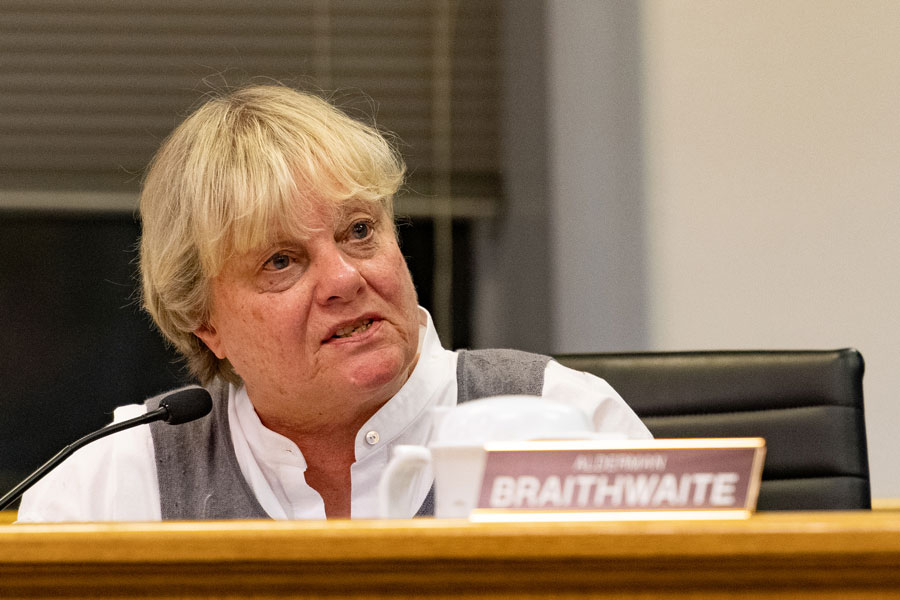City looks to raise property taxes by 4.9 percent, residents object
Daily file photo by Noah Frick-Alofs
City residents objected to a 4.9% tax increase during a recession at Monday’s City Council meeting
November 10, 2020
Evanston residents expressed dismay with a proposed 4.9 percent property tax increase for the 2021 fiscal year during a Monday City Council meeting, citing the impact of the pandemic-based recession on residents.
The proposed levy includes a 16 percent increase for the Human Services Fund, and a 4.2 percent and a 1.9 percent increase for the Fire and Police Pension Funds respectively. Aside from the pandemic’s harmful financial effects, residents also took issue with the increase in police financing, especially amid city-wide calls to decrease funding for Evanston Police Department.
“People are being forced out of Evanston. You can’t choose the staff over the residents who live here,” resident Mike Vasilko said. “That’s a very regressive way to treat the citizens at this time.”
Residents said property taxes could be lowered if the city furthers efforts to decrease Evanston Police Department funding.
This year, the city is estimating a 20 percent drop in calls for service and a 30 percent drop in total arrests, compared to 2019. Due to this decline, residents like Sean Peck-Collier say the tax levy should be lowered to accommodate the decrease in need for policing.
“So many people are financially struggling and forced to tighten their belts in order to survive,” he said. “Based on this budget we can do more of that too, instead of placing an increased tax burden on our neighbors to accrue funds that we know we aren’t going to spend.”
Resident Lori Keenan said funding for the police department in Somerville, Mass., a city with a comparative population and median income to Evanston, is $25 million less than the city’s current police budget.
She said the difference in municipal police budgets alone is reason to decrease funding.
“How and why do we justify that, while at the same time raising taxes of the people who are probably the most affected by this?” Keenan said.
Since the growth of a national movement to defund police this summer, residents and organizations like Evanston Fight For Black Lives have increasingly petitioned for decreases in Evanston police funding.
Ald. Peter Braithwaite (2nd) also expressed concern about what the increase in taxes would do to Evanston businesses.
“We have a working knowledge of what it looks like for our residents, but part of my concern is the impact on all of our local businesses,” Braithwaite said. “I don’t feel comfortable voting on the tax levy without understanding that impact.”
Amid a looming economic recession, the city of Evanston is advertising 12 new positions, both full- and part-time, to add to the payroll, according to city job listings.
Two of these positions are for full-time hires at the Evanston Public Library, which Vasilko said is the least “of all places” positions should be added right now given the limited hours and services due to the pandemic.
“It’s all about protecting the staff costs,” he said. “We’re struggling, and then there’s (12) new positions being advertised for the city.”
However, the Evanston Public Library has recently increased its efforts to provide low-income residents with educational and technological resources, a population that is likely to grow during a recession.
Notably, the city did not increase the library tax levy this year. But Vasilko said that given the reduced operations, residents should see a decrease in the library tax levy.
Residents said tax increases make it increasingly more difficult for residents, particularly low-income residents, to continue to afford Evanston.
“Nobody is asking for their taxes to be raised,” Keenan said. “Many people are worried about being able to stay in town.”
Email: jasonbeeferman@u.northwestern.edu
Twitter: @jasonbeeferman
Related Stories:
— City makes significant budget cuts to reduce COVID-19-driven deficit
— With slight majority, Evanston City Council could move toward defunding



